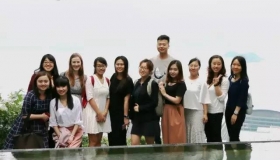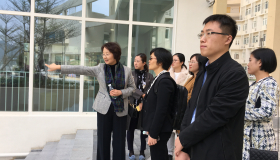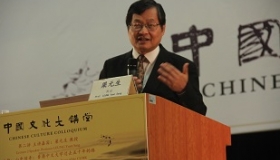Review | Prof. Liu Mingkang: Financial Services Supporting the Upgrading of Manufacturing

Prof. Liu Mingkang expressed his opinion the new manufacturing featured by smart technologies would release the traditional industries from the existing pressure. Attention should be attached to law, regulations, standards, and mechanisms, and the use of big data and information-based approaches to build a fair and transparent market characterized by openness, innovation, stability, and predictability.
The manufacturing industry is witnessing new trends, with more diversified products, customers’ demands and markets, declining profits, and fierce competition. The pressures from markets, costs, resources and environment are weighing on the traditional industries. By contrast, the new manufacturing is boosted by the intensive integration of new generation of information technology (such as the Internet of Things, big data, cloud computing, block chain, and artificial intelligence) and advanced manufacturing technology (such as 3D printing, advanced material, robots and automation). These new technologies have reached the whole process of production, including research and development, design, production, management, sales and after-sales service. Compared with the traditional industry, new manufacturing can provide a package of solutions with goods and services. Prof. Liu shared his belief that manufacturing would attract worldwide attention again. It is, therefore, necessary for China to enhance core competitiveness by industrial innovation and upgrade, and implement projects with strategic importance, such as high-end equipment, information network, and new energy. Not only do we need to support emerging industries and promote the technology reform of the traditional sectors, but we also need to combat overcapacity and deeply integrate industrialization and informatization, so as to promote economic development.
Prof. Liu pointed out that the difficulty of the manufacturing in financing is compounded by the low entrance, intense competition, high NPL Ratio, information asymmetry, and pro-cyclical effect. Financial services do not always match the demand for new manufacturing in the long run due to the lack of new technologies to support financial services and regulatory mechanisms, poor resource allocation of indirect financing and limited credit resources. Seriously, the cash flow of the capital market runs to other non-manufacturing industries, and the policy and regulation may not be appropriate.
With the extensive integration of finance and new manufacturing, both sectors urge disruptive revolutions. Facing such a brand-new challenge, the digital revolution shall be taken into consideration for all the industry leaders and financial regulators. We are dedicated to promoting the data-information sharing and facilitating transparency and disclosure of information, as well as pursuing supply-side structural reform and optimize financial supply. Besides, both parties need to set up standards and rules and improve the legal system to make markets open, innovative and fair. Overall speaking, attention should be attached to law, standards, and mechanisms, and the use of big data and information to ensure the openness, innovation, stability, and predictability of markets.
Prof. Shu Tao of Shenzhen Finance Institute and School of Management and Economics at The Chinese University of Hong Kong, Shenzhen was the host of the Mater Forum.

精彩图片





撰文:杨宇腾 Claire
摄影:Yifei
美编:Claire
责编:Flora




